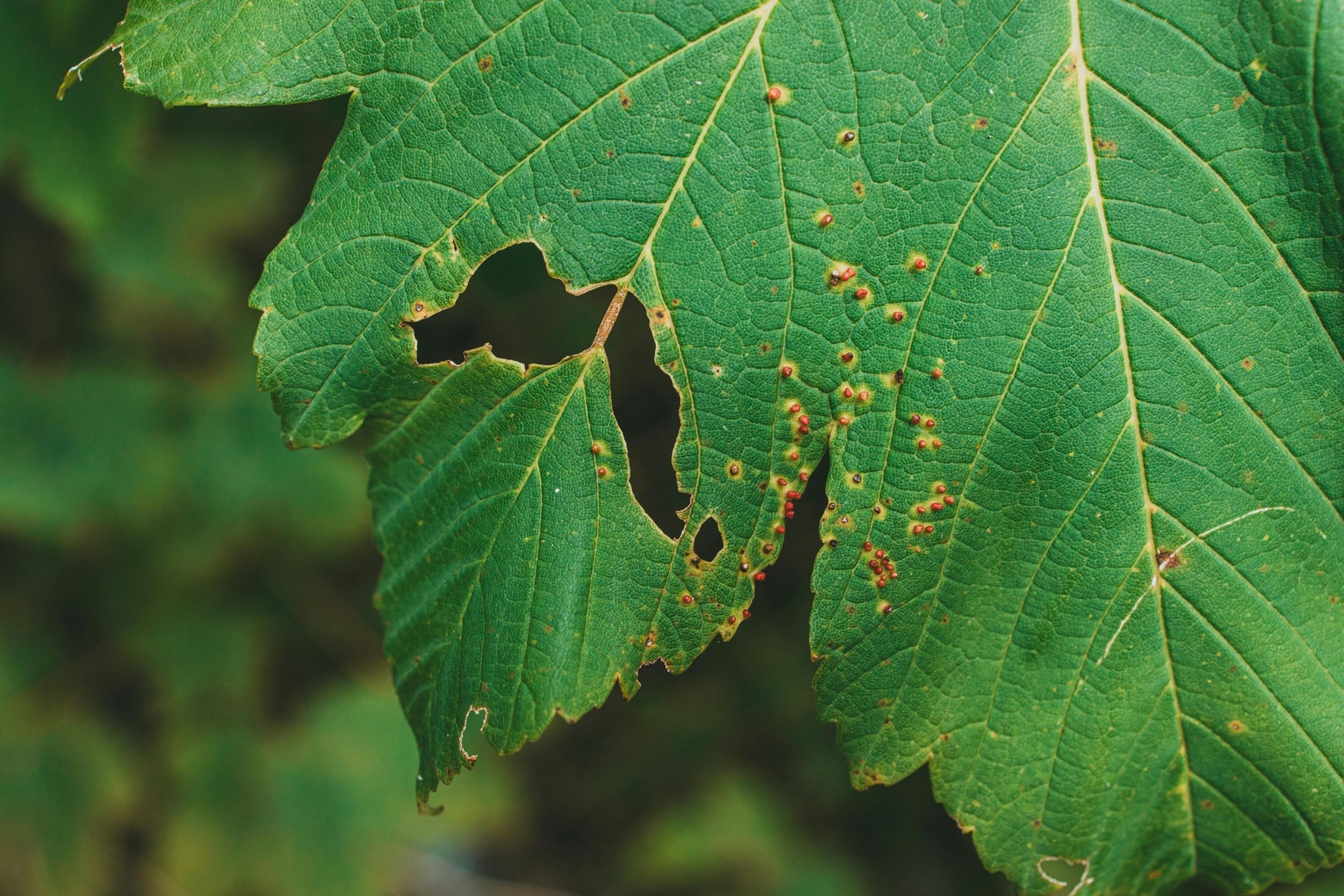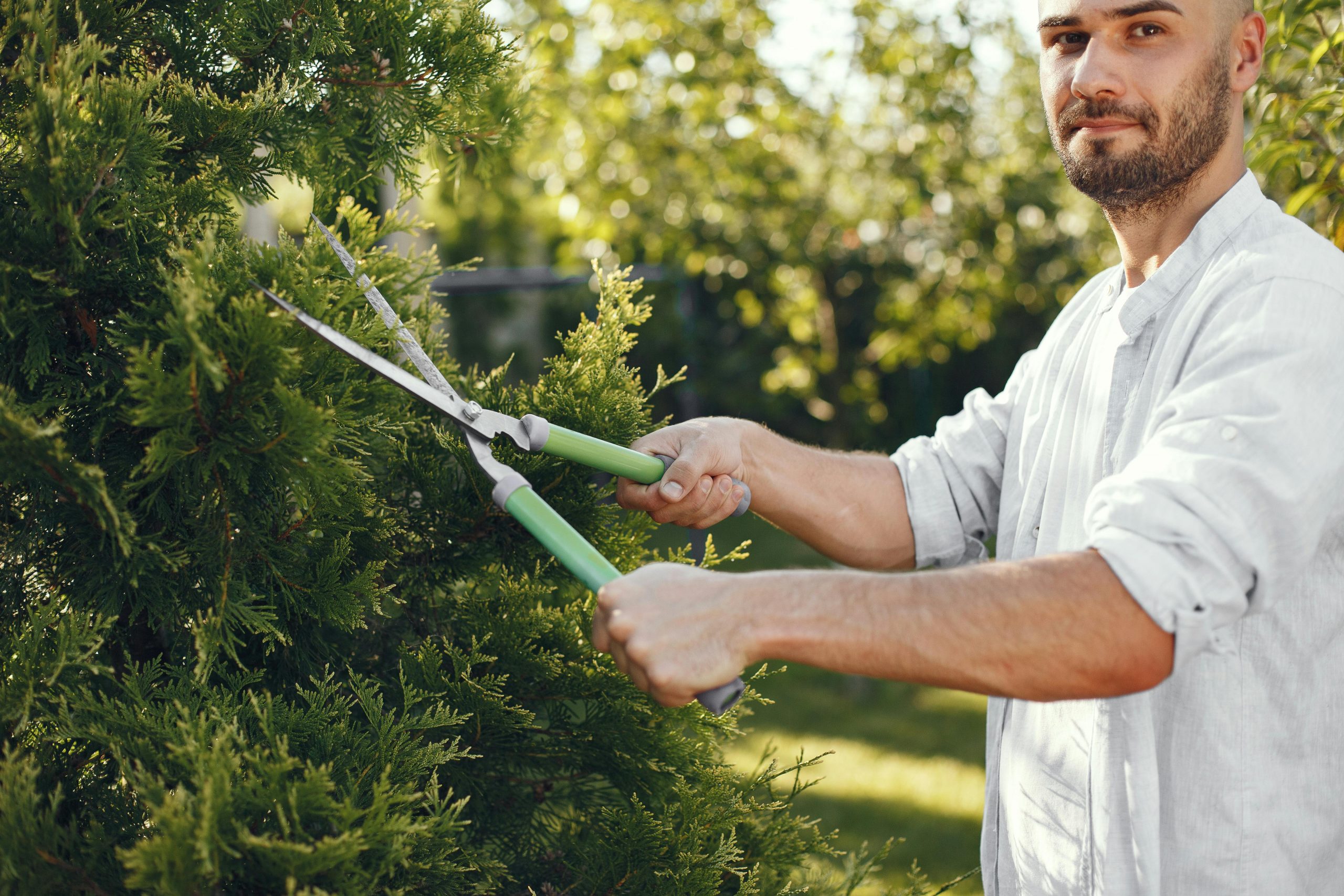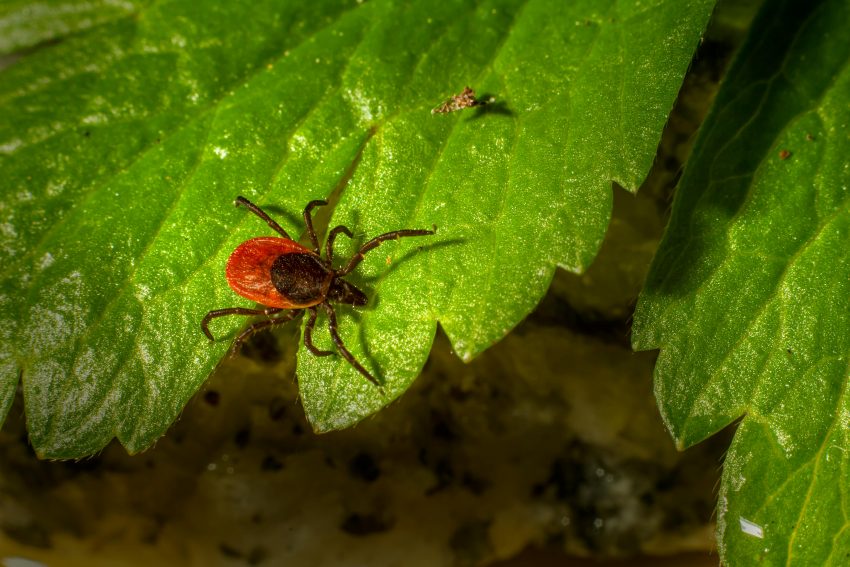- Understand why pests appear: Garden pests are drawn to food, water, shelter, and favorable climate conditions, so addressing these factors is key to prevention.
- Identify common pests: Knowing which insects and larger critters target your plants helps you implement targeted control strategies.
- Use natural pest control: Companion planting, homemade sprays, and smart mulching can effectively deter pests while protecting beneficial insects.
- Implement physical barriers: Row covers, netting, fencing, and seedling collars provide simple yet effective protection from a wide range of pests.
- Encourage beneficial insects: Ladybugs, lacewings, predatory wasps, and ground beetles naturally control pest populations and support a balanced garden ecosystem.
- Adapt strategies seasonally and maintain your garden: Regular weeding, pruning, debris cleanup, crop rotation, and seasonal adjustments ensure year-round protection.
Dealing with garden pests is a common struggle, but it doesn’t have to ruin your love for gardening. You can protect your plants and enjoy a stress-free experience by learning to manage these unwelcome guests. This guide will show you how to keep pests out of your garden all year round.
Why Do Garden Pests Appear?

Understanding why garden pests invade is the first step in prevention. They are attracted to your garden for food, shelter, and favorable conditions.
Common Reasons Pests Invade
- Food Sources: Fruits, vegetables, and flowering plants attract insects and animals seeking a meal.
- Standing Water: Mosquitoes and some beetles breed in stagnant water, so even small puddles can invite trouble.
- Shelter: Dense plantings, mulch, or garden debris create hiding spots for pests.
- Climate and Season: Certain pests are seasonal and thrive in specific weather conditions, such as warm, humid summers or mild winters.
What Are the Most Common Garden Pests?
Identifying the type of pest is essential for targeting your control strategies effectively.
Insects That Harm Plants
- Aphids: Tiny sap-sucking insects that can stunt plant growth and transmit diseases.
- Caterpillars: Feed on leaves and stems, potentially destroying seedlings.
- Whiteflies: Small flying insects that weaken plants and spread viruses.
- Spider Mites: Microscopic pests that cause leaf discoloration and webbing.
Larger Critters
- Slugs and Snails: Eat leaves and tender stems, often leaving a slimy trail.
- Rabbits and Deer: Can quickly consume vegetables, flowers, and young shrubs.
- Rodents: Mice and rats target seeds, fruits, and bulbs.
How to Keep Pests Out of Garden Naturally
Natural pest control methods are safer for the environment, pets, and beneficial insects. They also encourage a balanced garden ecosystem.
Companion Planting
Certain plants naturally repel pests or attract beneficial insects that control them.
- Marigolds: Repel nematodes and whiteflies.
- Basil: Deters mosquitoes and flies, perfect for planting near tomatoes.
- Garlic: Effective against aphids, spider mites, and Japanese beetles.
- Nasturtiums: Act as a trap crop by attracting aphids away from main plants.
Homemade Sprays
DIY sprays can target pests without harsh chemicals.
- Garlic and Chili Spray: Combine crushed garlic, chili peppers, water, and a little dish soap. Spray on leaves to repel insects.
- Soap Spray: Mix mild liquid soap with water to remove aphids and whiteflies.
- Neem Oil: A natural insecticide that disrupts pests’ feeding and breeding cycles.
Mulching Smartly
Mulch protects soil and retains moisture but can also harbor pests if done incorrectly.
- Use dry mulches like straw or wood chips to discourage slugs.
- Keep mulch a few inches away from plant stems to avoid creating hiding spots for rodents and insects.
- Refresh mulch regularly to prevent mold and fungal growth.
Can Physical Barriers Really Help?
Physical barriers are highly effective and often the simplest approach to protecting plants.
- Row Covers: Lightweight fabrics that protect seedlings and vegetables from insects while allowing sunlight and rain through.
- Netting: Prevents birds and larger animals from reaching fruits and vegetables.
- Fencing: Essential for keeping out rabbits and deer. For deer, fences should be at least 8 feet tall; bury the bottom a few inches to prevent burrowing animals.
- Collars: Small collars around seedlings deter crawling insects like cutworms.
How to Encourage Beneficial Insects
Not all insects are harmful. Many predators help control pest populations naturally.
Attracting Helpful Bugs
- Plant Flowering Herbs: Daisies, yarrow, dill, fennel, and coriander attract ladybugs, lacewings, and predatory wasps.
- Avoid Broad-Spectrum Pesticides: These kill both pests and beneficial insects.
- Provide Water: Shallow dishes or small ponds help insects survive dry periods.
Benefits of Beneficial Insects
- Ladybugs and lacewings eat aphids and other soft-bodied insects.
- Predatory wasps target caterpillars, leaf miners, and other common pests.
- Ground beetles feed on slugs, snails, and soil-dwelling pests.
What Role Does Garden Maintenance Play?

Regular garden care is one of the simplest yet most effective ways to keep pests out of garden all year.
Essential Maintenance Tasks
- Weeding: Removes shelter and food sources for pests.
- Pruning: Eliminates dead or diseased branches where insects can breed.
- Cleaning Up Debris: Fallen fruit, leaves, and plant debris attract pests like rodents and slugs.
- Crop Rotation: Prevents pests that specialize in certain plants from establishing long-term populations.
How to Handle Pest Problems in Different Seasons
Pest activity varies with the seasons, so your prevention strategies should adapt accordingly.
Spring
- Check seedlings for aphids and caterpillars regularly.
- Apply row covers early to prevent infestations.
- Encourage beneficial insects as they emerge.
Summer
- Monitor for spider mites, whiteflies, and slugs.
- Water appropriately to reduce plant stress, which can attract pests.
- Inspect plants for fungal diseases that may make them more vulnerable.
Fall
- Harvest crops promptly to avoid attracting rodents.
- Remove fallen leaves and decaying fruit.
- Clean garden beds and prepare soil for winter.
Winter
- Protect perennials with fencing or cold frames.
- Use hoop houses to limit pest exposure.
- Maintain healthy soil with compost and mulch to strengthen plant resilience.
Are Chemical Pesticides Necessary?
Sometimes infestations become too severe for natural methods alone. When used carefully, chemical pesticides can help.
Best Practices for Using Pesticides
- Choose targeted pesticides rather than broad-spectrum sprays.
- Follow the manufacturer’s instructions exactly.
- Avoid spraying during bloom periods to protect pollinators.
- Combine chemical treatments with natural strategies for integrated pest management.
How to Keep Pests Out of Garden Without Breaking the Bank
Effective pest control doesn’t need to be expensive. There are many budget-friendly methods to protect your plants.
- Reuse containers and jars to make DIY traps.
- Create homemade sprays from kitchen ingredients like garlic, soap, or chili.
- Use recycled netting or fencing for barriers.
- Exchange tips and materials with neighbors for community gardening support.
In Closing
Pests are a natural part of gardening, but they don’t have to control your garden. By combining natural deterrents, physical barriers, beneficial insects, and consistent maintenance, you can keep pests out of garden all year. Adapting your strategies to seasonal changes and monitoring your plants regularly ensures a thriving, healthy garden that you can enjoy all year long.
